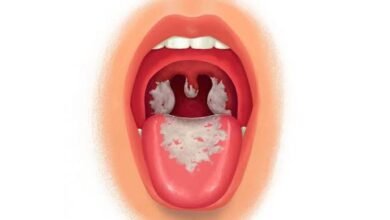How Parental Fighting Can Affect a Child’s Mental Health

Source: https://www.parents.com/
Even in healthy relationships, occasional arguments between parents can impact children negatively. Studies show that when conflicts escalate into serious fights, it can harm children’s mental health, leading to increased risks of depression, anxiety, lower self-esteem, and diminished sense of security. Toxic behaviors like physical altercations, insults, and the silent treatment can have long-term emotional effects on children.
Why Parent Fights Are a Problem
Children of all ages, from near infancy through early adulthood, are impacted by how their parents handle their differences. Researchers believe high-conflict marriages take a toll on a child’s mental health and self-esteem. Here are some of the ways kids are impacted.
- It can cause insecurity. Fighting undermines kids’ sense of security about the stability of the family. Children exposed to a lot of fighting may worry about divorce or wonder when one parent’s silent treatment is going to end. It becomes difficult for them to have a sense of normalcy in the family since fights may be unpredictable.
- It can affect the parent-child relationship. High-conflict situations are stressful, and a stressed-out parent might not spend a lot of time with their kids. In addition, the quality of the relationship may be affected, as it may be difficult for parents to show warmth and affection when they’re angry with each other.
- It can create a stressful environment. Overhearing frequent or intense fighting is stressful for kids and can be scary. Stress can take a toll on their physical and psychological well-being and interferes with normal, healthy development.
Long-Term Mental Health Effects
A 2012 study examined how parental conflict affects children from kindergarten through seventh grade. Initially, parents reported their level of marital conflict and their criticism during discussions on difficult topics. Seven years later, researchers found that children of parents who frequently fought in kindergarten were more likely to experience depression, anxiety, and behavioral problems by seventh grade.
Frequent parental fighting can significantly impact children in various ways:
- Decreased Cognitive Performance: Children in high-conflict homes struggle with attention, problem-solving, and pattern recognition. They also face higher risks of poor academic performance and high school dropout.
- Relationship Issues: Exposure to parental discord often leads children to handle conflicts with hostility and can impair their ability to form healthy relationships and trust others in adulthood.
- Behavior Problems: Increased aggression, delinquency, and difficulty adjusting to school are common among children from high-conflict families.
- Eating Disorders and Physical Issues: High parental conflict is linked to eating disorders and physical symptoms like sleep problems, stomachaches, and headaches.
- Substance Use: Children from conflict-ridden homes are more likely to engage in smoking, vaping, binge drinking, and drug use.
- Negative Outlook on Life: Children exposed to parental fighting often develop negative views about their family relationships and themselves, leading to low self-esteem and mental health concerns that persist into adulthood.
When Parental Fighting Becomes Problematic
All parents should take a close look at how they argue. Just because your fights don’t get physical doesn’t mean they aren’t harmful to your kids. There are several tactics parents use that are destructive to children.
Destructive Disagreement Tactics
- Name-calling
- Insults
- Threats of abandonment (such as divorce)
- Any form of physical aggression (including throwing things)
- Walking out or withdrawing from the argument
- Capitulation (giving into the other parent)
Diminishing the Effects of Parent Fights
Having a spat or two doesn’t mean you’ve irreparably harmed your child. However, you might want to take a few steps to lessen the effects of what they see and hear:
- Discuss the fight: Although you don’t have to get into specifics, hold a family meeting to say something like, “Daddy and I had an argument the other night that got out of hand. We didn’t have the same opinion on something that was important to both of us, but it was wrong for us to fight like that.”
- Reassure the kids: Stress that the argument isn’t indicative of bigger problems. Reassure them that you still love each other and that you’re not going to get divorced (assuming, of course, that it’s a true statement).
- Bring closure: Make sure your children understand that you’re still a strong family. Explain that arguments happen sometimes and people can lose their tempers. However, you all love each other, despite your disagreements.
If you believe that your fights with your spouse or partner are harming your child’s mental well-being, consider seeing a therapist.
ReadMore:https://childreninfobank.com/safebank/parental-fighting-can-affect-a-childs-mental-health-heres-how/
Image Source:https://www.parents.com/





